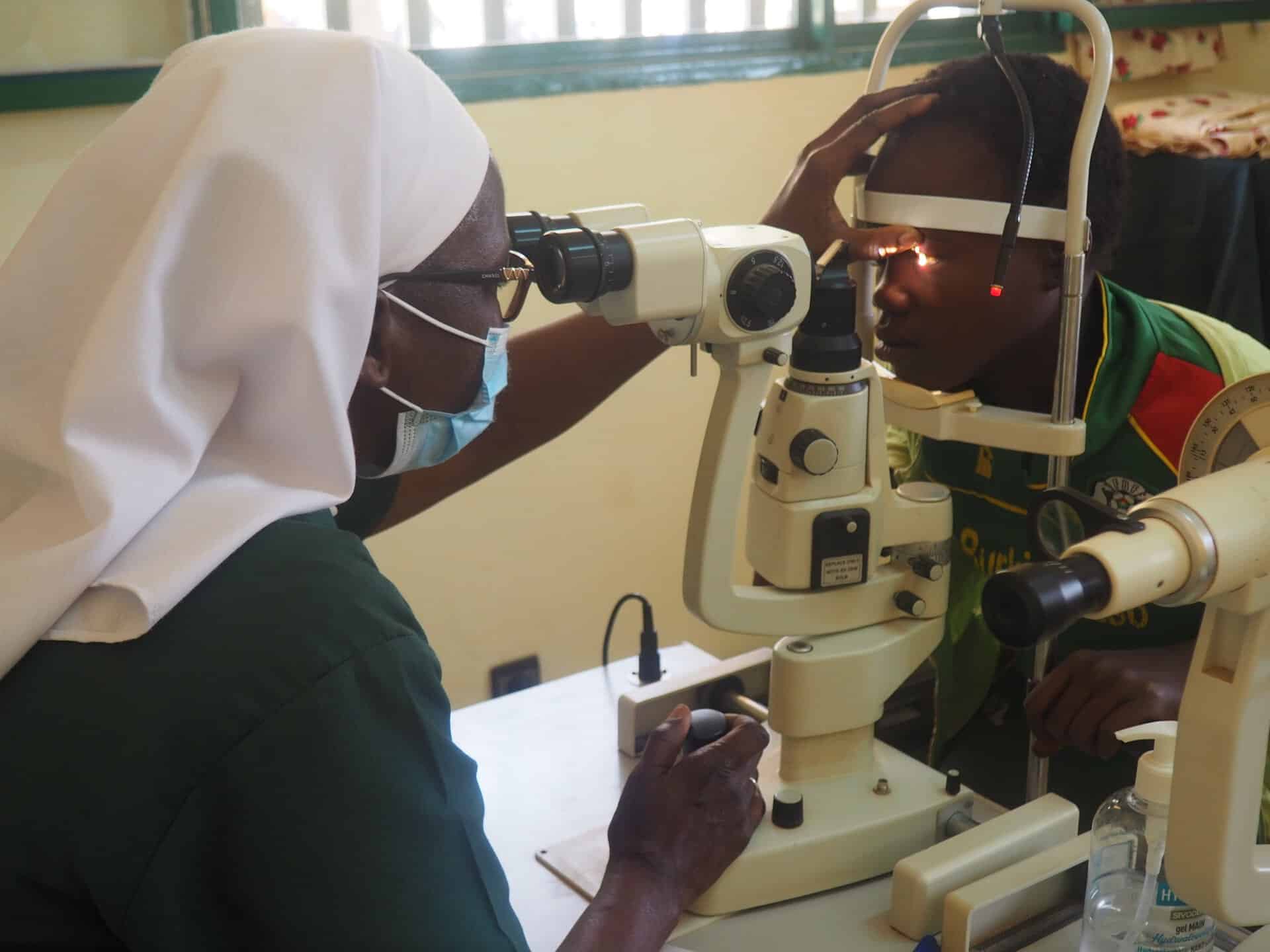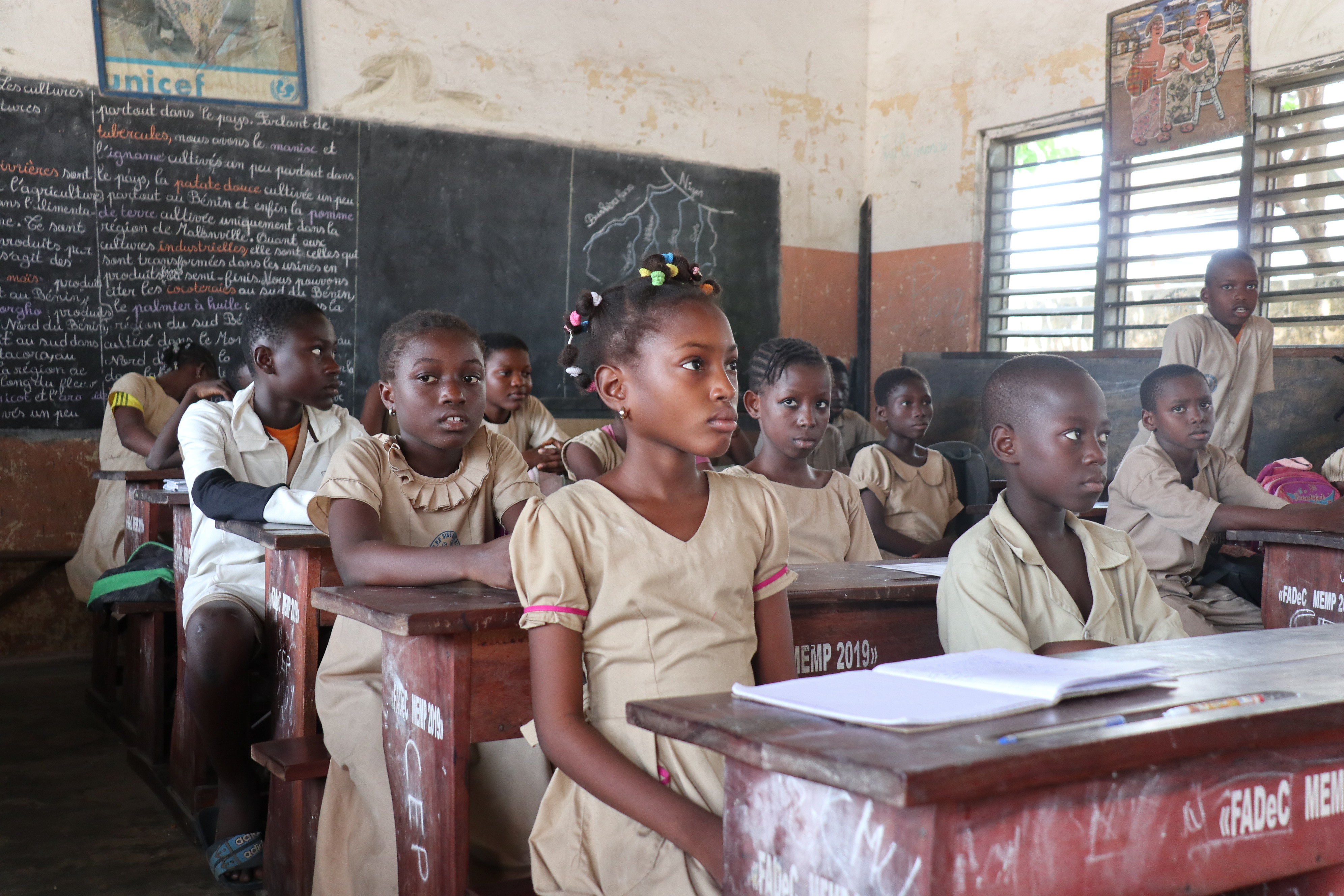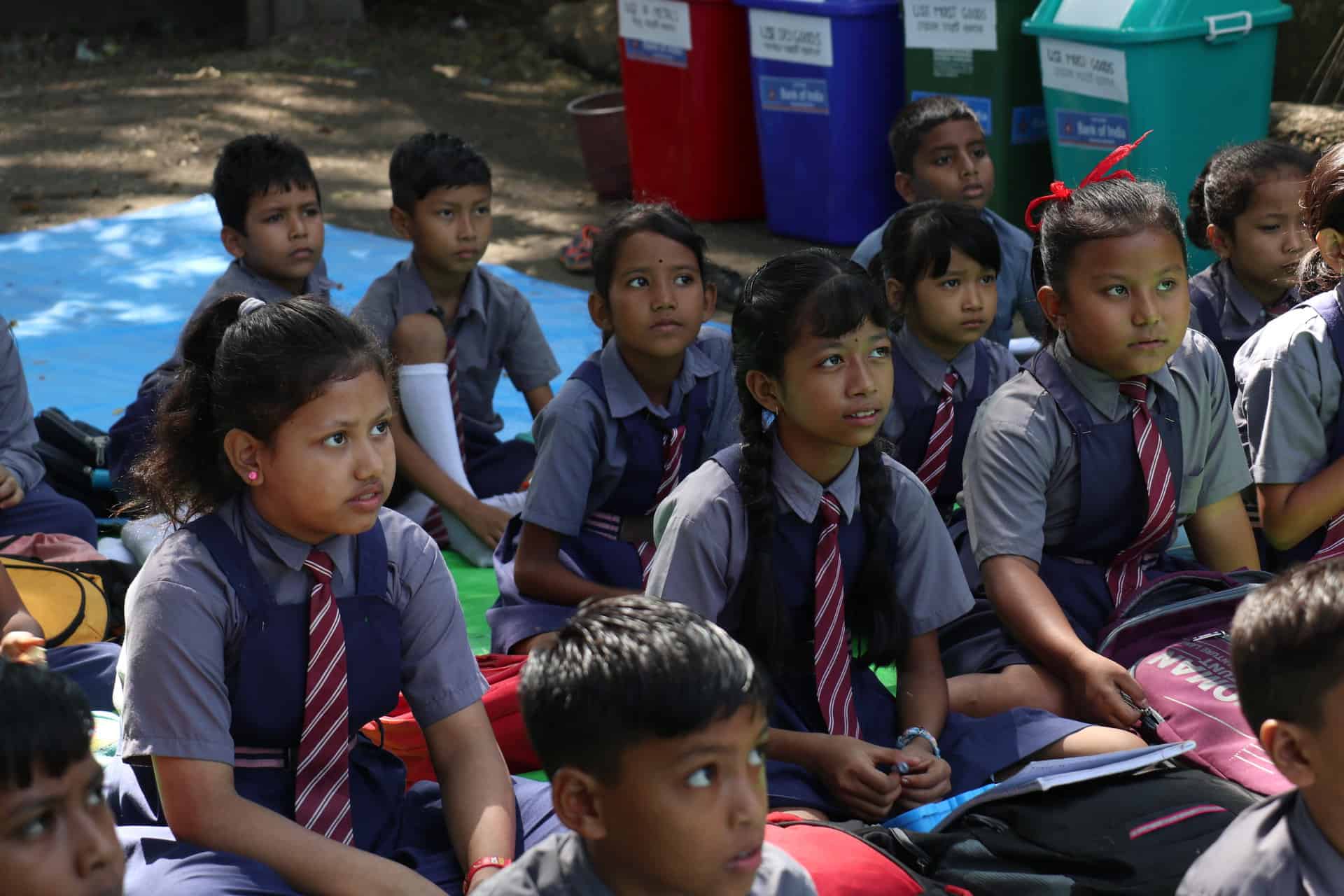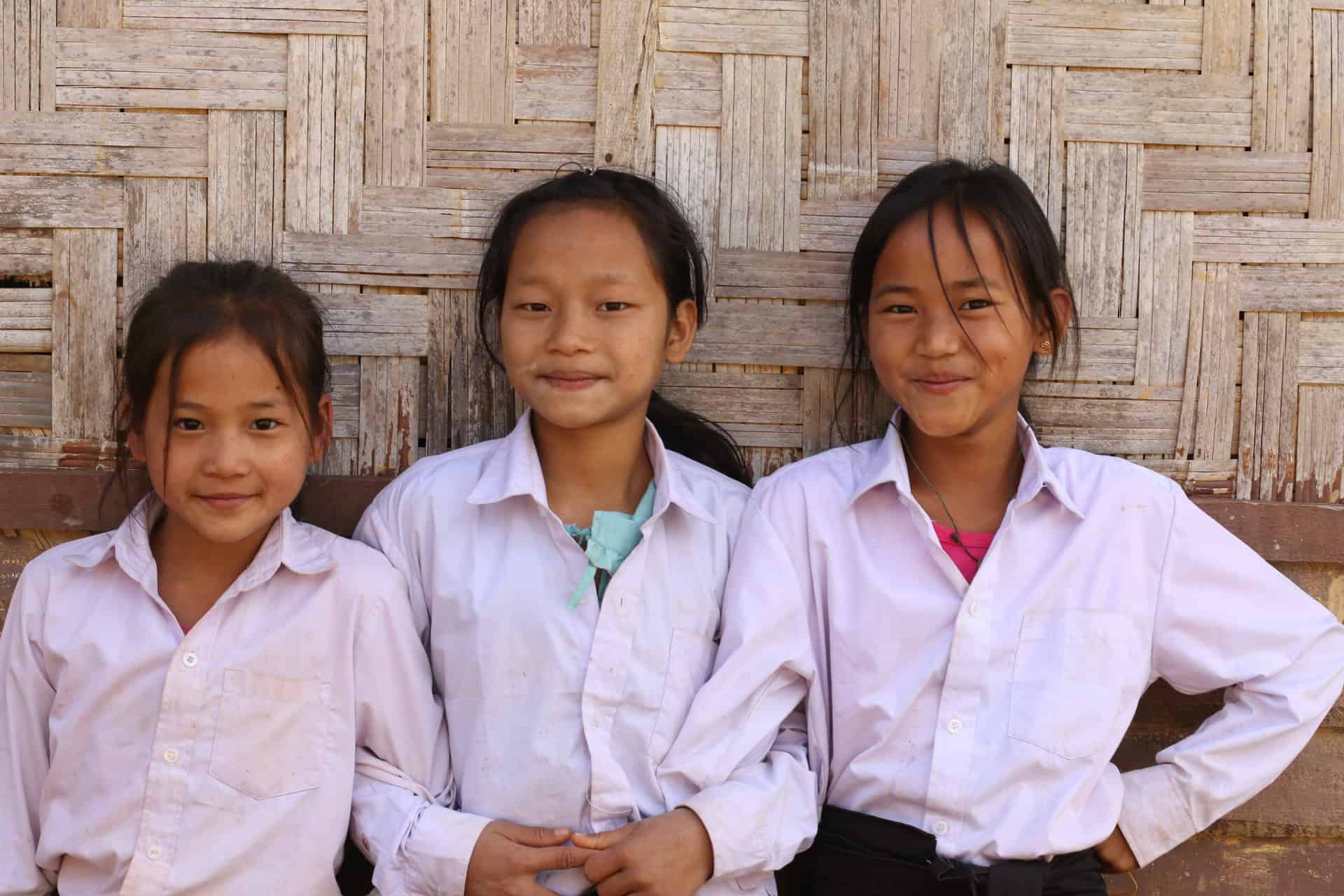Photo credit: Vincent-Reynaud Lacroze
In the absence of a treatment for COVID-19, African states are also forced to take preventive health measures that seem far removed from the daily reality of the populations they govern. While the decision has been taken to reopen schools, Aide et Action - an international association for development through education working in Africa - is concerned about this discrepancy and the multiple consequences of the current crisis, especially for the youngest.
As soon as the pandemic began to spread, the World Health Organisation warned that the COVID-19 crisis would be more catastrophic in Africa than elsewhere.
As soon as the first cases were confirmed on the continent, the States adopted, as a matter of urgency, very strict preventive health measures: curfews, quarantine of many cities, closure of schools, borders, markets, bars/restaurants, strong reduction or even stop of public transport, etc.
However, although their usefulness is no longer in question, it must be noted that these measures have been adopted systematically and applied without any possible adaptation to the realities specific to each of the contexts, countries and territories where they are currently implemented.
Insufficient resources to meet the scale of the needs
Thus, the obligation to wear a mask is currently in force in Benin, Togo, Niger and Burkina Faso, but no official solution allows the population to obtain sufficient quantities of masks that meet the required protection standards. Individual solutions and other "plan Bs" are therefore being developed, without any guarantee of quality.
In addition, the obligation to wear a mask for all will probably lead to a significant increase in prices. However, as a result of the implementation of the sanitary measures, the majority of the urban population of Burkina Faso has lost their jobs, often on a daily basis. As they cannot afford to buy several masks (when and if they are available), families may have to share them. In the streets of Ouagadougou, fruit sellers are already passing around the same mask, which has been rendered useless, to avoid police checks.
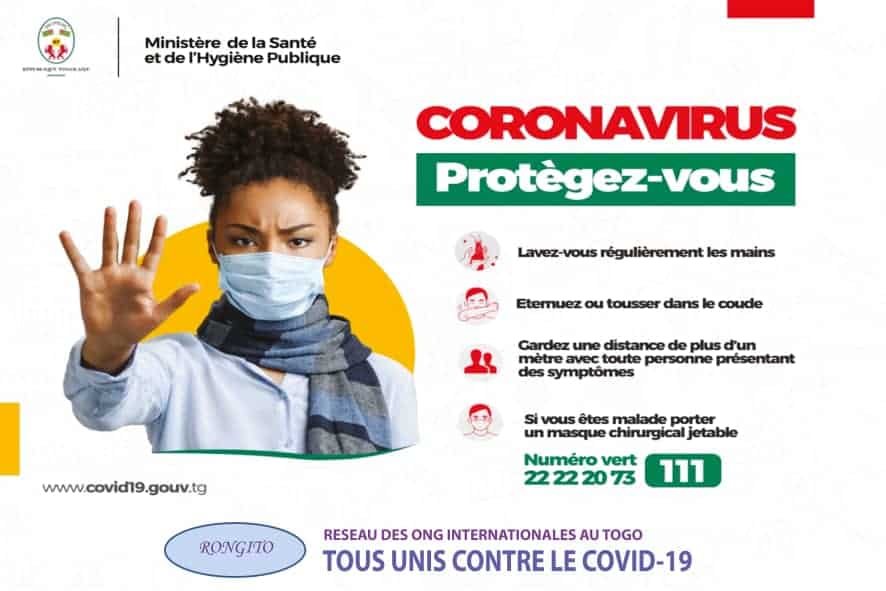
Halted informal sector and violence
Everywhere, the African informal sector is impacted by the COVID-19 pandemic and its consequences. While the informal sector accounts for over 85% of the continent's economy and feeds millions of families, the current crisis is bringing it to a halt, generating major losses. social and economic difficulties.
In TogoThe ban on motorbike taxis deprived 500,000 young people of their only source of income. Some of them decided to defy the ban and chases between young people and the police took place, with potentially dramatic consequences. In some Sahelian countries, such as NigerIn Burkina Faso, scuffles broke out between the police and the inhabitants of several neighbourhoods in Niamey, and riots broke out in several other towns in the country. In Burkina Faso, the public prosecutor had to intervene to refocus the forces of order and encourage them to act only in strict compliance with the law.
The Togolese government has decided to set up a monthly compensation fund for all those who have lost their business as a result of the government's anti-COVID-19 measures. This initiative is innovative, but will it really be effective in terms of statistical reliability and target identification? In Africa today, faced with the global pandemic of COVID-19, the disarray of the populations is equal to the powerlessness of the public authorities.
Education at risk?
While France is now wondering whether it should really send its children back to school, in Burkina Faso, the government has called on associations of women weavers of "Faso danfani" (local fabric), as well as the army's clothing unit, to make masks and thus equip pupils, teachers and administrative staff for the reopening of classes on 28 April. But these resources seem far from the industrial production and logistical capacities needed to cover the needs of the whole country.
For Aide et Action, "education" should not become synonymous with "endangerment". It is essential to respect the right to health and protection of the youngest, especially in schools. In African countries, where social safety nets do not exist and where it is not uncommon to have more than 60 students per class, the return to school must also be done in optimal safety conditions.
Because we cannot rely solely on the vain hope that children will comply with preventive measures, which is impossible in such conditions, it is up to each government to take responsibility and contextualise the measures and decisions taken.
Dramane SESSOUMA, with the Aide et Action Africa and France teams
***
Association for Development through Education, Aide et Action has been providing access to quality education for the most vulnerable and marginalised populations, especially children, girls and women, for 40 years, so that all can take control of their own development and contribute to a more peaceful and sustainable world. Because we promote lifelong learning, we pay particular attention to early childhood care and education, access to and quality of education at primary and secondary levels, and vocational training and social inclusion. Thanks to the support of our 47,000 donors, we are running more than 70 projects in Africa, Asia, Europe - and especially in France - for more than one million children, young people and adults.
In 2019, in Africa, Aide et Action carried out 32 projects in 9 countries - Benin, Burkina Faso, Côte d'Ivoire, Guinea, Madagascar, Mali, Niger, Senegal and Togo - for nearly 900,000 people.
To go further:


